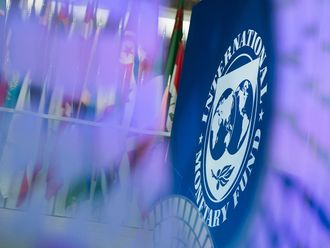Dubai An operation by Noor Islamic Bank has been disrupted by the US Treasury Department under the belief that it was evading international sanctions on Iran, according to a Wall Street Journal report.
Noor Islamic, a privately owned bank, agreed to close the operation after the US government believed it to be Iran's largest channel for repatriating foreign currency oil receipts.
The bank said it is in compliance with the rules that govern the sanctions against Iran.
"As a UAE bank we comply with all UAE Central Bank and UAE government directives and international regulations, including those emanating from the UN, regarding sanctions on Iran. When we became aware, in December 2011, that unilateral US sanctions were to be applied against a number of Iranian banks we took pre-emptive action to end our business relationships with Iranian banks licensed in the UAE, said a spokesperson for Noor Islamic bank in an emailed statement.
The bank did not offer any further comment on the reported action by the US Treasury Department.
So far the United States has targeted only one bank in the UAE. A Federal government official said yesterday that the government is in touch with the US regulators on Iran sanctions.
"We are committed to international laws and are working with the US government to protect our banks," said Khalid Al Gaith, assistant to the UAE foreign minister for economic affairs.
The National Bank of Abu Dhabi (NBAD), the UAE's second-largest bank by assets, said yesterday that it is reducing banking activities with Iran in the face of mounting international sanctions.
"We don't have much business with Iran. We have been reducing our activities in full compliance with the local regulations and international sanctions," Michael Tomalin, NBAD's chief executive, said yesterday.
As far as NBAD's US operations are concerned, Tomalin said the bank is very cautious. "We have a fairly large business interest in the US and we take a lot of care to abide by US regulations," he said.
Following Iran's decision to continue with its nuclear programme, Washington has been pressing banks around the world to cut ties with the country.
In November, the US named Iran as a prime area of concern for money laundering and blacklisted 11 entities suspected of aiding its nuclear programme. The government has also expanded sanctions to target firms that aid Iran's oil and petrochemical industries.
The US's latest round of sanctions banned transactions involving Iran's central bank.
The European Union has also agreed in January to freeze the assets of Iran's central bank to try to persuade Iran to stop its nuclear programme.
Prior approval: stringent norms
From early February, a number of banks based in the UAE have started implementing more restrictions in the services they offer to Iranian nationals for fear of being penalised for violating any terms of the international sanctions placed on the country.
A leading bank in the country issued an internal memo to their staff asking them to seek permission from the top management before offering banking services to non-resident Iranian individuals including salary earners.
"Branches have been advised to obtain prior approval of our head office to open even salary accounts and offer normal banking services such as money transfers and credit card services," a Dubai based banker told Gulf News in a recent interview.












